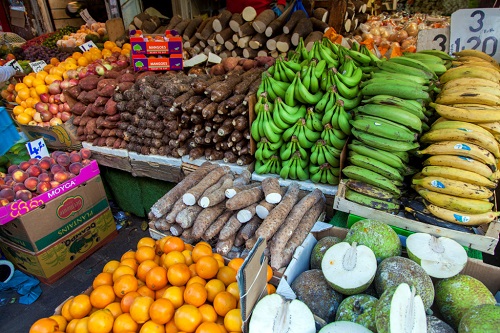Time to Regenerate: Why the Global Food Industry Should Embrace Regenerative Agriculture Now
In the 1980s, many smallholder farmers in Viet Nam switched their primary crop from tea to coffee, seeking higher profitability. One of them was a young man named Trinh Tan Vinh.
Like many of his neighbours, Vinh soon embraced intensive coffee monoculture, spraying chemicals up to eight times a year to control pest-induced crop loss. Of course, this approach also eliminated beneficial predators, such as spiders and ladybugs, thereby creating a vicious cycle of more frequent pesticide application.
Soil health and fertility soon declined, as did the family’s health and Vinh found himself investing even more in agricultural inputs to keep his farm afloat.
Today, farm expansion in the form of monocultures dominates not only the coffee sector in Viet Nam, but the agriculture industry as a whole. Agriculture accounts for nearly 70% of freshwater withdrawals and is considered a significant contributor to water scarcity in many regions.
The loss, fragmentation and degradation of natural habitats caused by agricultural expansion is the main driver of biodiversity loss, with agricultural expansion being the primary threat to nine out of 10 endangered species.
Moreover, one in five hectares of the world’s farmland is currently considered degraded, resulting in lower crop yields and reduced incomes.
As a result, the livelihoods of millions of farmers are at risk and climate change is only exacerbating the problem. Those most affected are the weakest actors in global food supply chains: smallholder farmers, who produce significantly for the world’s food supply but in many cases, do not earn a living income.
Global agriculture is nearing a tipping point. The food we eat, the coffee and tea we drink, and the farmers who produce it all hang in the balance.
Global agriculture must give more than it takes
Regenerative agriculture can play a crucial role in enhancing climate resilience and restoring ecosystems, while also ensuring long-term financial stability for farmers.
While “regenerative agriculture” remains vaguely defined in some contexts, the Rainforest Alliance’s definition is rooted in clear principles and science-based practices built upon nearly four decades of agroecology and holistic ecosystem management.
That means improving soil health and fertility, supporting clean water, storing carbon and maintaining healthy ecosystems – all of which ultimately lead to more resilient agricultural communities.
For Trinh Tan Vinh, the turning point came in 2008, when he began adopting regenerative methods, including planting peanuts for erosion control, applying organic manure and using an integrated pest management approach. Today, Vinh’s farm is thriving, earning 40% more per year than neighbouring farms.
Regenerative practices are hardly new. In fact, they’ve been practiced for thousands of years by Indigenous Peoples all over the world: agroforestry or growing crops in a way that mimics the forest and offers shade, protection and nutrients for the crops; improving soil health through cover cropping; and reducing reliance on synthetic inputs such as fertilizers and pesticides.
In the race towards greater productivity and quick-fix solutions, we’ve forgotten some of the wisdom of our ancestors.
Impact on soil, biodiversity and productivity
Surely, regenerative agriculture is neither a quick fix nor a cure-all but it can be an essential tool in reversing the damage already done and charting a path for a future agriculture and food supply chains.
The most reliable data to support this comes from the coffee sector. Findings from several countries by the international non-profit TechnoServe indicate that regenerative practices can raise farm net income significantly while improving soil health, water retention and long-term productivity.
Moreover, studies show that agroforestry systems in coffee enhance biodiversity, improve soil fertility, and increase resilience to climate variability.
Certification to advance the regenerative revolution
The Rainforest Alliance has championed the journeys of farmers and companies towards sustainability for decades, while embracing regenerative practices. However, it is now time to take the regenerative revolution a step further.
Today the Rainforest Alliance launched a new Regenerative Agriculture Standard and accompanying product seal, providing farmers and companies with a science-based standard to track their regenerative impact on soil health and biodiversity.
This standard is one of the most comprehensive in the sector and includes 119 requirements that address not only environmental issues but also critical social impact, providing farmers with a clear, science-based certification pathway for measuring progress and outcomes across five impact areas: soil health and fertility, climate resilience, biodiversity, water stewardship and livelihoods.
While initially available only for coffee, the organization will continue expanding its certification to other crops, including cocoa, citrus and tea, throughout 2026.
The time to act is now. Companies can join the regenerative transition by incorporating regenerative agriculture into their sourcing strategies, funding the transition through farmer training and technical support and collaborating to expand regenerative outcomes from farm to landscape levels.







